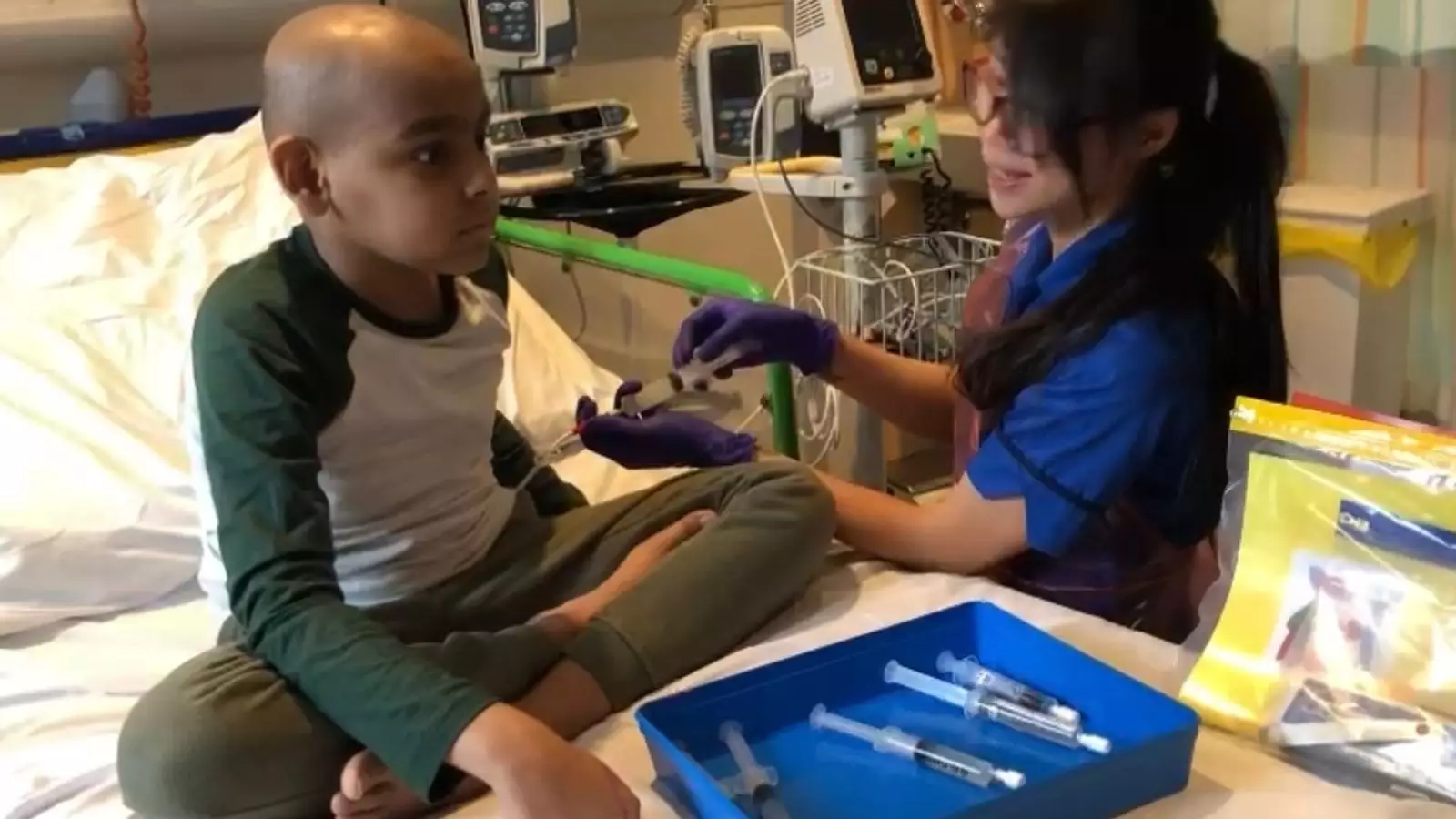The NHS has made significant strides in providing fast-track access to newly approved cancer drugs for patients in need. One such patient is Yuvan Thakkar, a 16-year-old who received CAR-T therapy at Great Ormand Street Hospital to fight his leukemia. This innovative therapy involves modifying the patient’s immune cells to target and destroy cancer cells before reintroducing them back into the body. Yuvan’s experience with the treatment was described as a positive “slope going up,” illustrating the life-changing impact that faster access to new treatments can have on patients.
The NHS Cancer Drugs Fund, established in 2016, plays a pivotal role in ensuring that patients have timely access to innovative cancer treatments. Over the past eight years, the fund has helped nearly 100,000 patients access new and promising therapies. Patients with a wide range of cancers, including common ones such as breast, lung, and prostate, as well as less common and rare cancers, have benefited from the fund’s support. Additionally, the fund allows patients to receive NICE-approved treatments six months faster than usual, ensuring that they have timely access to potentially life-saving therapies.
While the progress made in improving access to cancer treatments is commendable, there are concerns about the growing backlog of cancer cases and delays in treatment. Professor Pat Price, a leading oncologist, and co-founder of the Catch Up With Cancer campaign, highlighted that since the onset of the pandemic, 250,000 patients have experienced delays in their treatment. This has led to a downgrade in treatment targets, with the goal of beginning treatment within two months reduced from 85% to 70%. The implications of these delays are significant, as they can impact the effectiveness of treatments and the overall well-being of patients.
The COVID-19 pandemic has exposed and exacerbated existing challenges in cancer care, leading to a crisis in cancer treatment. The NHS’s shift in recovery targets for cancer treatment indicates the immense strain that the healthcare system is under. Despite the progress made in improving access to new cancer treatments, there is a pressing need to address the backlog of cases and ensure that all patients receive timely and effective care. It is crucial to prioritize cancer care and allocate resources to support patients in accessing the treatments they need to combat this deadly disease.
As we navigate the complexities of cancer treatment access, it is essential to strike a balance between innovation and patient care. While advancements in cancer treatments offer hope for patients like Yuvan, who have benefited from cutting-edge therapies, we must also address the systemic challenges that hinder access to care for many others. By addressing treatment backlogs, setting ambitious recovery targets, and prioritizing cancer care, we can ensure that all patients have equal access to life-saving treatments. The journey towards improving access to cancer treatments requires collaboration, innovation, and a steadfast commitment to putting patients first.


Leave a Reply